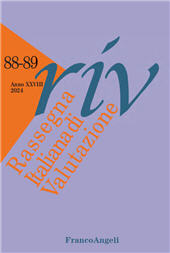Valutare il capitale umano degli insegnanti attraverso il modello del DIGCOMPEDU : il caso di studio del progetto CAVE-Communication and Visual education in Homeschooling
162-187 p.
This contribution focuses on one of the three components of the DESI Index (Digital Economy and Society Index), human capital, through the presentation of the CAVE-Communication and Visual Ed-ucation in Homeschooling project, funded by the European Commission through the National Agency for the Erasmus+ Program to the primary school teachers. The article presents the preliminary evaluation results of the CAVE project related to the digital skills of teachers acquired during the 2022-2023 experimentation. This study makes it possible to frame the type and level of knowledge and skills of primary school teachers in 5 European countries involved in the project (Italy, Spain, Lithuania, Romania and Poland),.
trying to emphasize at what moment in the professional life of digital teaching it is more domesticated to achieve professional goals than the main six areas of integration outlined in the European framework DIGCOMPEDU (Professional Engagement, Digital Resources, Teaching and Learning, Assessment, Empowering Learners and Facilitating Learners). In fact, this model represents one of the European Commission's main tools for investigating the human capital of educators at a European level, in a comparative key, in line with the criteria underlying the DESI INDEX, contextualised in the specific field of school. [Publisher's Text].
Fait partie de
RIV : rassegna italiana di valutazione : 88/89, 1, 2024-
Articles du même numéro (disponibles individuellement)
-
Informations
Code DOI : 10.3280/RIV2024-088009
ISSN: 1972-5027
KEYWORDS
- human capital, digital skills, school, participatory evalua-tion, pluralist approach, DESI INDEX


